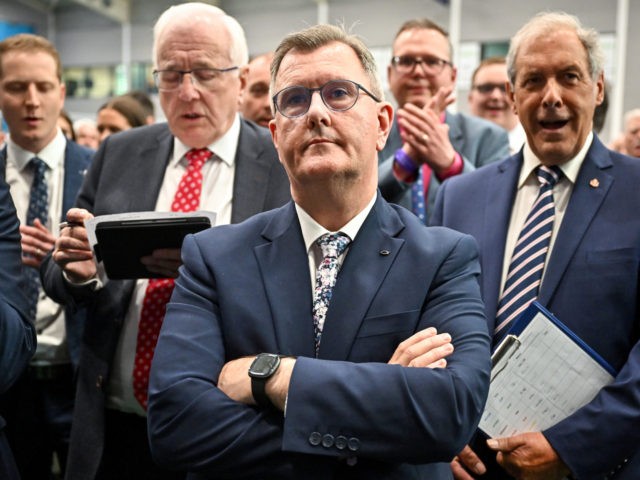An Irish nationalist electoral victory in Northern Ireland now looks certain to cause Brexit chaos in the United Kingdom thanks to an extremely contentious agreement with the European Union.
Another spanner has been thrown in the works for Britain’s exit from the European Union thanks to the victory of the Irish nationalist Sinn Féin party in Northern Ireland’s regional elections on Thursday.
Up until now, both London and Brussels had been sparring over the so-called Northern Ireland Protocol of Boris Johnson’s Brexit deals, which see the EU maintain some control over the region which is located on the island of Ireland but legally part of the United Kingdom.
Despite Britain’s Conservative Party government wanting reforms to the agreement over fears that Brussels has too tight a grip on Northern Ireland, according to a report by POLITICO, last week’s election has seen pro-protocol politicians become the majority in the region’s Stormont-based devolved parliament, with the anti-UK Sinn Féin managing to become the single largest party in the assembly.
This in turn appears like it will set local politicians — both pro-UK Unionists and Irish Republican Nationalists alike — on a collision course with Boris Johnson’s government over their approval of the protocol as it is already agreed.
“It’s clear the Northern Ireland Protocol must be fixed… and that cannot be put off,” Sky News reports one senior government minister, Deputy Prime Minister Dominic Raab, as saying, reaffirming the British government’s opposition to the current version of the protocol.
“If not we’ll have to take the measures to make sure that the economic integrity of the trade between Northern Ireland and the rest of Great Britain [sic] and frankly the constitutional integrity of the United Kingdom is protected and preserved,” he continued, emphasising London’s disapproval of the agreement despite the fact that it appears most officials in the region now approve of the controversial protocol.
This sentiment was shared by Jeffery Donaldson, leader of the pro-Brexit and pro-UK Democratic Unionist Party (DUP), which had been the single-largest party in Stormont before being deposed by Sinn Féin.
“It is the Protocol – not Brexit – that has created a border in the Irish Sea [between Great Britain and Northern Ireland]. As such it represents an existential threat to the future of our place in the Union,” Donaldson said in an opinion piece published in The Telegraph.
“The checks on the Irish Sea border are the symptom of the underlying problem, that Northern Ireland is subject to a different set of laws imposed by a foreign entity without any say by any elected representative of its people,” he continued.
“The DUP is seeking the restoration of democratic decision-making to the NI Assembly but there must be a firm foundation, which means replacing the democratic deficit created by the Protocol,” the Unionist leader added, hinting at the possibility that his party might scupper the ability of Sinn Féin to actually form a regional government through Northern Ireland’s power-sharing rules, set up to try and ensure peace in a land which has traditionally been beset with sectarian violence.
UK Surrenders Brexit Red Line, Will Allow EU Court Final Say in Northern Ireland https://t.co/xhSgx256rH
— Breitbart London (@BreitbartLondon) December 19, 2021
While the recent electoral result will likely see it become far more difficult for authorities in the United Kingdom and the EU to come to an amicable post-Brexit settlement on how the region is government, a different kind of political exit is also being discussed as a result of last week’s election: that of Northern Ireland from the United Kingdom to join the rest of Ireland, which has been a separate nation-state since 1922.
With the party’s first-ever victory in Northern Ireland, Sinn Féin’s party president, Mary Lou McDonald, promised that Ireland would see a poll on unification within the next ten years.
“I believe we are going to see these [unification] referendums — and there have to be two, north and south — in the coming years,” McDonald — who also serves as the leader of the opposition within the parliament of independent Ireland — is reported as saying.
“Certainly within this decade we are going to see constitutional change on the island of Ireland,” she continued.
However, while the Irish Republican party will now become the single largest entity within the local legislature, it does not appear that a sizeable majority support unification as of this time.
Instead, according to the BBC, the election’s result seems to indicate that both Irish Nationalists and British Unionists are on an even keel popularity-wise within the region, with around 20 per cent of the population voting for parties more neutral on the issue of which political union Northern Ireland belongs in.
Exclusive – Boris Saying He ‘Got Brexit Done’ Is ‘A Joke’ to Northern Irish: DUP MPhttps://t.co/1s25MPfBMN
— Breitbart London (@BreitbartLondon) February 1, 2022

COMMENTS
Please let us know if you're having issues with commenting.